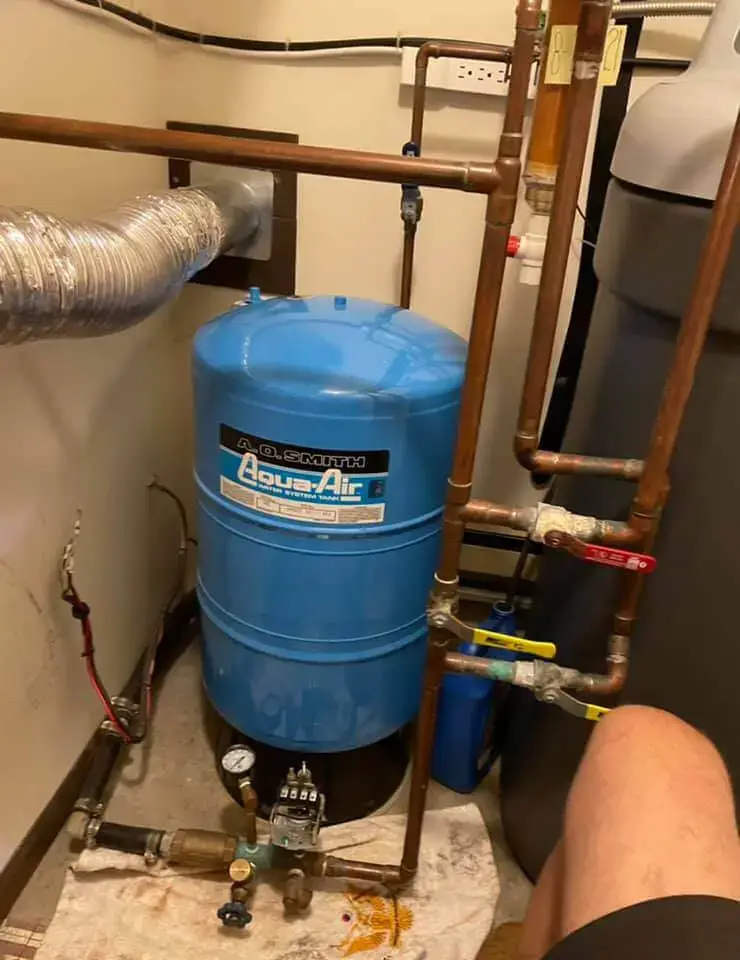Uncomplicated Well Pump Replacement: Renewing Your Water Framework with Self-confidence
Uncomplicated Well Pump Replacement: Renewing Your Water Framework with Self-confidence
Blog Article
Recognizing the Key Elements of Effective Water Filtering Solutions

Relevance of Water Filtering Systems
Water filtration systems play a vital function in guaranteeing accessibility to risk-free and tidy alcohol consumption water by properly eliminating pollutants and contaminants. These systems are crucial in attending to the growing worries over water high quality and the potential health and wellness threats related to eating infected water. By using different purification systems such as reverse osmosis, triggered carbon, and UV sterilization, water filtration systems can successfully eliminate dangerous compounds like bacteria, infections, hefty steels, and chemicals from the supply of water.
Moreover, water filtering systems assist to boost the taste and odor of water by getting rid of chlorine, sediments, and various other contaminants that can affect its quality. Water Treatment. This improvement in water quality not only makes it much more palatable yet additionally encourages people to drink an adequate amount of water daily, advertising better hydration and general wellness
Sorts Of Purification Components

Physical filters are created to physically strain out impurities from the water. These filters can be constructed from materials like ceramic, carbon, or also sand, and they work by trapping bits larger than the filter's pores as water goes through.
Chemical filters use numerous chemical processes to remove contaminants from the water. Instances consist of triggered carbon filters, which adsorb contaminations, and reverse osmosis membranes, which make use of stress to different contaminants from the water.
Biological filters utilize living microorganisms like bacteria or algae to break down raw material and toxins in the water. These filters are commonly made use of in wastewater treatment plants or all-natural water filtration systems.
Comprehending the different types of filtering elements is essential for choosing the most appropriate water filtering system for particular purification demands.
Feature of Debris Filters
Debris filters play a vital function in water filtering systems by properly recording solid bits suspended in the water. These filters are typically the very first line of defense in a purification system, eliminating bigger particles such as sand, silt, dust, and rust before the water relocates via finer filtration stages. By trapping these debris, the filters stop them from reaching downstream elements, therefore extending the life-span and performance check it out of the whole system.
Neglecting this upkeep can lead to obstructing, minimized water circulation, and compromised purification efficiency. In general, sediment filters are important elements that add substantially to the effectiveness of water purification systems.
Function of Turned On Carbon Filters
Playing a critical duty in water purification systems, activated carbon filters are instrumental in eliminating contaminations and contaminants from the water supply. These filters are created to adsorb and trap a broad range of contaminants, including chlorine, volatile organic substances (VOCs), pesticides, and herbicides. The activated carbon material has a big surface location, enabling the reliable capturing of impurities through a procedure called adsorption. As water passes via the filter, the turned on carbon brings in and holds onto the pollutants, ensuring that the water that appears beyond is cleaner and safer for intake.
Triggered carbon filters are extremely efficient at enhancing the preference and smell of water by reducing chemicals that can impact its quality. Due to their adaptability and dependability, activated carbon filters are a crucial element in guaranteeing that water is cleansed to the weblink highest possible requirements prior to getting to customers.
Comprehending Reverse Osmosis Equipments
Reverse osmosis systems are innovative water purification systems that utilize an innovative process to remove contaminants and contaminations from alcohol consumption water. These systems work by using stress to the water, compeling it with a semi-permeable membrane.
Furthermore, reverse osmosis systems are fairly low-maintenance and can be mounted under the sink or in a main filtering system, providing hassle-free access to tidy water throughout the home. Generally, comprehending just how reverse osmosis systems work can aid people make informed choices concerning their water filtering demands.
Verdict
Finally, reliable water filtering systems are essential for making sure safe and tidy alcohol consumption water. The vital parts of these systems include debris filters, activated carbon filters, and turn around osmosis systems. By understanding the function and function of each part, individuals can make educated choices when picking a water filtration system. It is essential to focus on the quality i was reading this of water in order to promote general wellness and well-being.
Water filtering systems play a crucial role in guaranteeing access to clean and risk-free drinking water by efficiently eliminating impurities and contaminations. By using numerous filtering mechanisms such as reverse osmosis, activated carbon, and UV sterilization, water filtering systems can effectively remove unsafe materials like bacteria, infections, hefty steels, and chemicals from the water supply.
Sediment filters play an essential function in water purification systems by properly catching strong particles put on hold in the water (Water Filtration Systems).Playing an essential duty in water filtering systems, activated carbon filters are important in removing contaminations and pollutants from the water supply.Reverse osmosis systems are innovative water filtration systems that utilize an advanced process to eliminate pollutants and pollutants from drinking water
Report this page